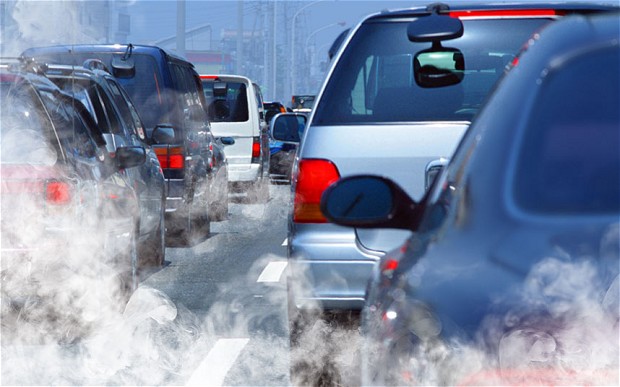
London allowed diesel cars a reduction in the congestion charge because ‘CO2‘; now they are finding hugely increased particulate pollution levels. Wow! Who’d a thunk it? It seems the unintended consequences are spreading. Quote.
The aftermath of the Dieselgate scandal is pushing drivers to switch from diesel to gasoline cars, undermining efforts to cut carbon dioxide emissions from road transport.
Average CO2 emissions from new cars rose in 2017 for the first time since 2010 ? largely due to the fuel change, according to final data released by the European Environment Agency (EEA) on Thursday.
That?s bad news for the EU?s efforts to cut emissions by at least 40 percent by 2030. Cars are responsible for around 12 percent of total EU CO2 emissions, according to the European Commission.
The EEA said that average CO2 emissions from new cars sold in 2017 increased by 0.4 grams of CO2 per kilometer to 118.5 grams, up from 118.1 grams in 2016. Under EU rules, carmakers need to meet a fleet-wide target of 95 grams by 2021.
Since 2010, emissions from new cars have fallen by 15.5 percent, or almost 22 grams of CO2 per kilometer; but emission reductions slowed between 2015 and 2016.
The lobby group European Automotive Manufacturers’ Association said only 2 percent of all new cars registered last year were electrically chargeable.
The rise in car pollution in 2017 is ?stark confirmation that car makers need to achieve further and faster improvements in manufacturing and promoting more efficient cars,? the EEA said.
EU carmakers ? with the support of national and EU officials ? decided more than a decade ago that the best way of meeting emissions targets was promoting diesel, which emits less CO2 than petrol.
However, that strategy has collapsed in the wake of Volkswagen’s 2015 admission that it cheated on emissions tests. There is also growing concern about urban pollution ? diesel emissions are a key driver of smog ? and cities across the Continent are moving to ban older and more polluting diesel cars from their streets.
Diesel?s sudden unpopularity has sent buyers back to gasoline, as carmakers still aren’t producing enough attractive (and affordable) no- and low-emission vehicles to make up the slack.
The data tells the story.
Some carmakers are already failing to meet their annual targets.
For the first time since 2009, gasoline overtook diesel ? accounting for 53 percent of registrations. The two conventional technologies together accounted for 97.1 percent of new registrations.
The share of plug-in hybrid and battery-powered electric cars rose from 1 percent to 1.5 percent in 2017. Hydrogen cars made an appearance for the first time with fewer than 200 units, with other alternatives such as liquefied petroleum gas and compressed natural gas cars accounting for the remaining registrations.
The trend is continuing, according to the European Automotive Manufacturers’ Association.
The lobby group said only 2 percent of all new cars registered last year were electrically chargeable. At the same time, petrol further expanded its market share by almost 6.5 percentage points in 2018, accounting for 56.7 percent of all cars sold in the EU. […] End quote.
Politico

